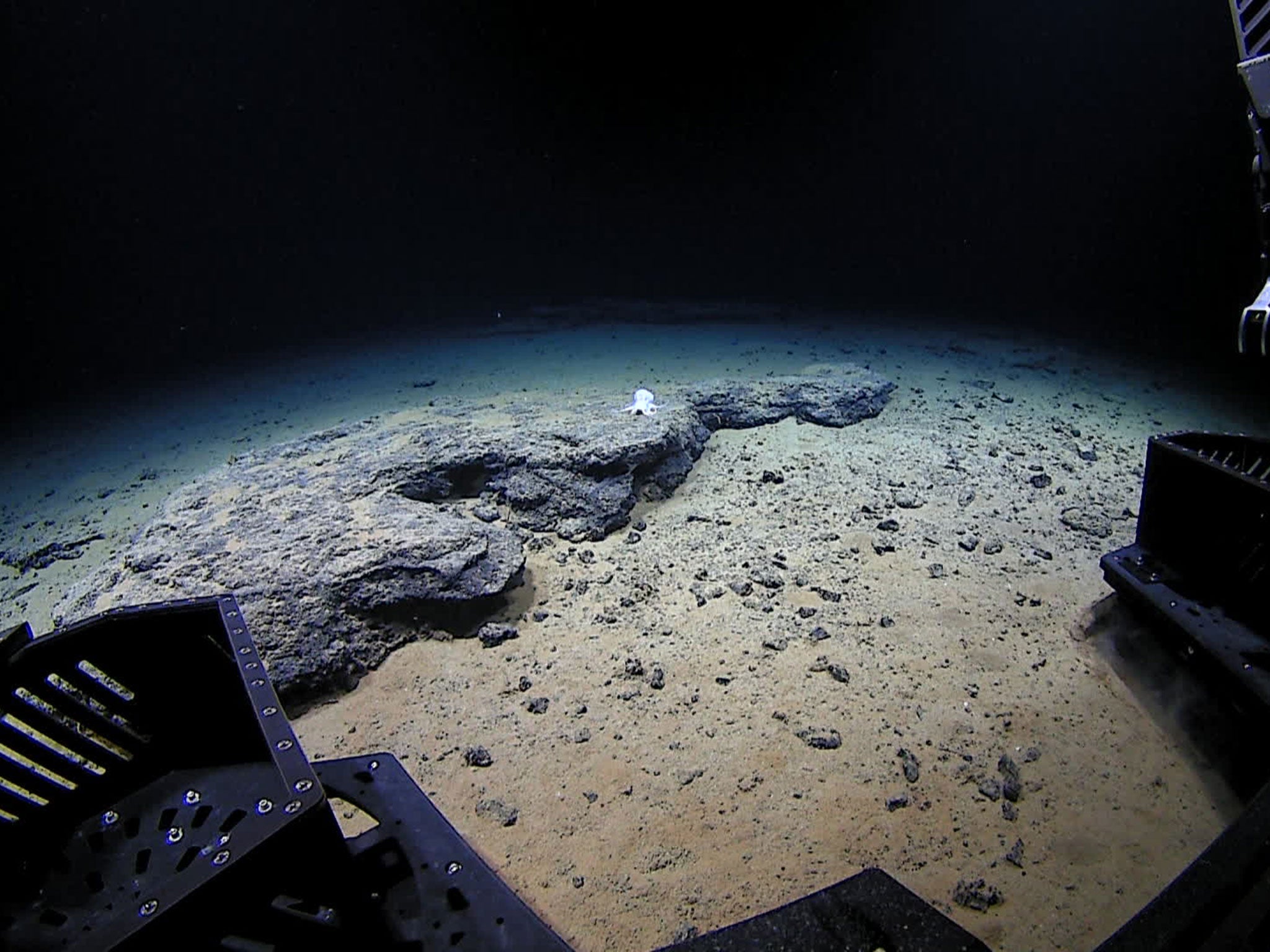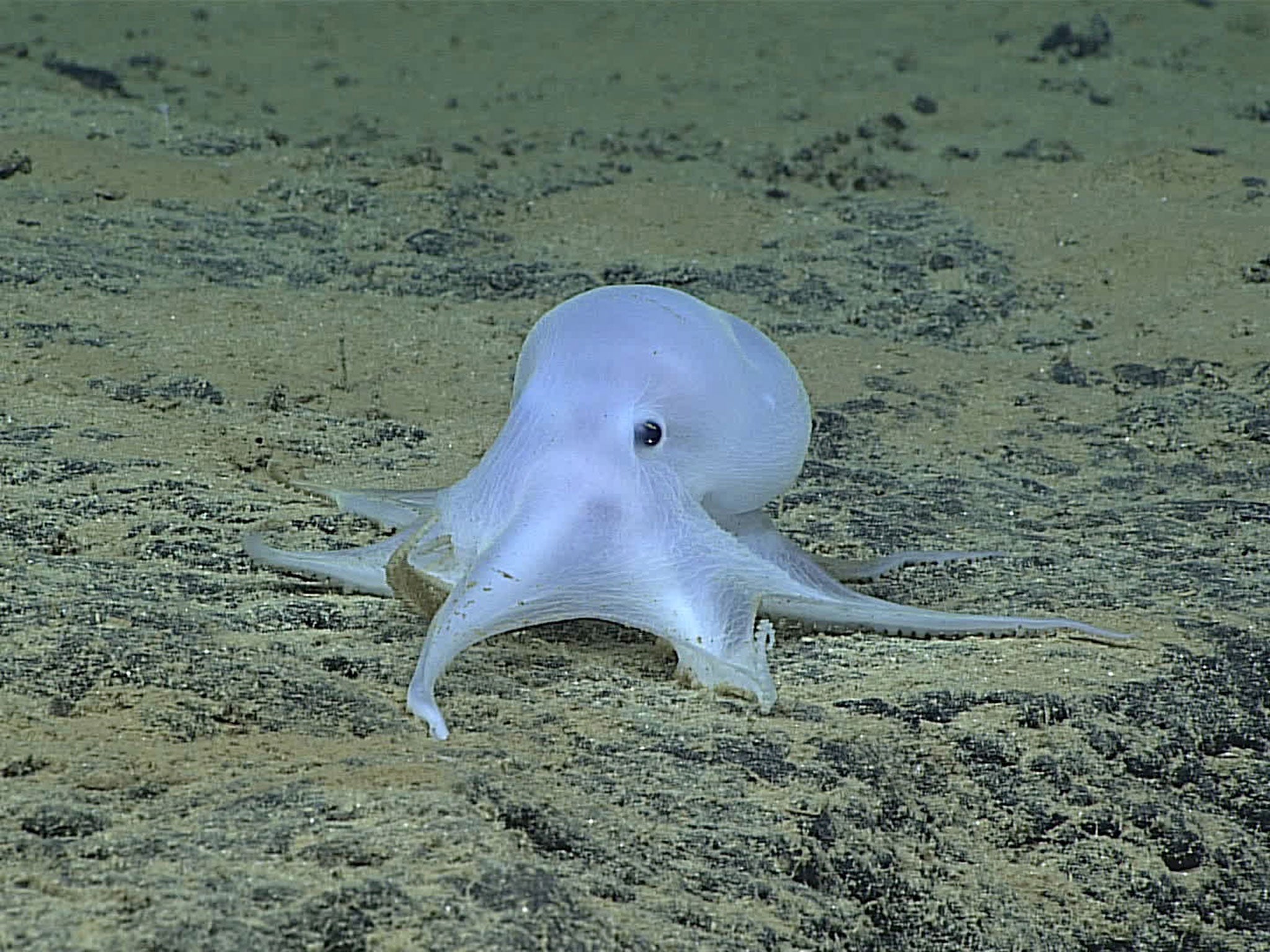Scientists discover possible new species of deep-sea octopus nicknamed 'Casper'
Researchers made the discovery by coincidence while exploring the sea floor near Hawaii
Your support helps us to tell the story
From reproductive rights to climate change to Big Tech, The Independent is on the ground when the story is developing. Whether it's investigating the financials of Elon Musk's pro-Trump PAC or producing our latest documentary, 'The A Word', which shines a light on the American women fighting for reproductive rights, we know how important it is to parse out the facts from the messaging.
At such a critical moment in US history, we need reporters on the ground. Your donation allows us to keep sending journalists to speak to both sides of the story.
The Independent is trusted by Americans across the entire political spectrum. And unlike many other quality news outlets, we choose not to lock Americans out of our reporting and analysis with paywalls. We believe quality journalism should be available to everyone, paid for by those who can afford it.
Your support makes all the difference.Scientists believe they may have found a new species of octopus likened in appearance to Casper, the friendly cartoon ghost.
Researchers with the US National Oceanic and Atmospheric Administration made the discovery by chance as they searched the seabed on an unrelated mission collecting geological samples.
Teams were operating an unmanned submarine on the Pacific Ocean floor at depths of more than four kilometres (two-and-a-half miles) in the Hawaiian Islands when they spotted the unusual creature.

One of the researchers, Michael Vecchione, said the camera was traversing a rocky plateau when it “came across a remarkable little octopod sitting on a flat rock dusted with a light coat of sediment”.
“The appearance of this animal was unlike any published records and was the deepest observation ever for this type of cephalopod”, he added, saying it did not have the normal shape and colouring associated with octopods found in deep water.
Mr Vecchione said the creature was believed to be a member of the incirrates suborder but had suckers in one, rather than two, series on each arm.

“This animal was particularly unusual because it lacked the pigment cells, called chromatophores, typical of most cephalopods, and it did not seem very muscular,” he added.
“This resulted in a ghostlike appearance, leading to a comment on social media that it should be called Casper, like the friendly cartoon ghost. It is almost certainly an undescribed species and may not belong to any described genus.”
The researcher contacted colleagues to share the find, made on 27 February, and said they will compare the “Casper” octopus with others observed at similar depths for a scientific report.

Join our commenting forum
Join thought-provoking conversations, follow other Independent readers and see their replies
Comments